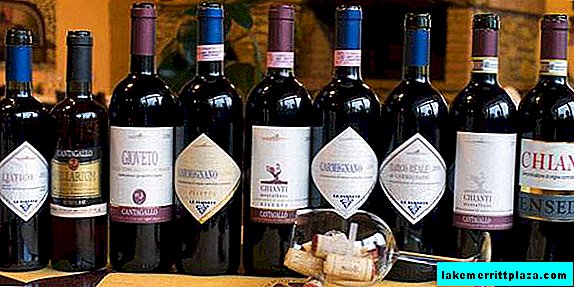Roman law formed the basis of the lawmaking of all ancient civilization, and subsequently became the foundation on which the legal thought of the peoples of the Romano-Germanic group inhabiting Continental Europe was formed. Until now, they are a compulsory subject of study at relevant universities around the world, bearing a special philosophical, historical and cultural significance.
The leading role in the development of Roman law was played by the Laws of the XII tables. They became the first set of written rules governing almost all sectors of life in the urban community.
Thus, in particular, Laws of the XII tables determined family, inheritance, property and money relations, the procedure for conducting legal proceedings, as well as punishments for crimes committed.
Appearance story
The period of the creation of the Laws of the XII tables is considered to be the middle of the V century BC. e. According to the generally accepted version, two commissions participated in writing the code of rules. The first convocation, which consisted exclusively of patricians, prepared ten rules based on the study of Greek law that did not satisfy the needs of the plebeian population of Rome, which caused an acute political conflict. As a result, a year later a second commission was created, which included representatives of the unprivileged class, which supplemented the code with two more provisions.
It is noteworthy that the name "Laws of the XII tables" appeared due to the fact that the texts of legal norms were carved on special wooden (according to some sources - copper) boards installed on the main city square (forum) for public viewing. It was assumed that every citizen was obliged to remember the code by heart, not evading their obligations because of ignorance of the law, which was to serve the prosperity and establishment of order in the state. Moreover, jurisprudence was considered a compulsory part of secular education, and was taught in schools to children.
- I advise you to read about: Roman Forum
The originals of the Laws of the XII tables have not been preserved to this day. Historians believe that they were lost during the invasion of the Gauls in the IV century BC. e. However, the text of the code, or rather, certain provisions from it, were reproduced and systematized in the works of many Roman writers, scholars and politicians, both in the form of accurate quotes and free retelling.
General characteristics
The laws of the XII tables reflected the level of legal consciousness of the ancient Roman era. Despite the preservation of some remnants of the patriarchal communities, the plebeians received formal equality with the patricians in litigation. When defending their rights, for any citizen, regardless of gender and class affiliation, it became possible to be guided by the letter of the law, and not by conservative ancient customs.
Justice has become the highest standard. A judge convicted of bribery was subject to the death penalty. Similarly punished for perjury and defamation. The new set of rules revoked special privileges, in particular, to preserve equality, the costs of burial of noble persons were limited. At the same time, marriages between plebeians and patricians remained banned for a long time, and were permitted only in 445 BC.
Particular attention in the laws was paid to patriotic aspects. The betrayal of the interests of Rome in any form was strictly condemned and threatened the traitor to the homeland with physical harm.
The Laws of the XII tables reflected the mechanisms for concluding transactions, contracts and methods of resolving any property disputes. Private ownership of land was limited and very blurry: buying and selling, donating and inheritance were to be controlled by the community, and only citizens could own and dispose of allotments.
At the same time, the Roman, who worked the ownerless plot for two years, was given the right to take it into ownership. The infringement of another's property or evasion of debt repayment was severely punished.
It is noteworthy that only the head of the family could dispose of the property, which was also an echo of the archaic society. According to the Laws of the XII tables, he was endowed with unlimited power over all households (agnates), including his wife, children and grandchildren. Thus, far from every free person fully enjoyed civil and political rights.
Interesting Facts
Some provisions of Laws XII of the tables seem, from the point of view of modernity, strange and even wild. So, among the rules that were particularly cruel are:
- Infants with deformities or injuries were allowed to kill at birth.
- The age for marriage was set: 12 years for girls and 14 for boys.
- The dead were forbidden to bury or burn on the territory of urban lands.
- Female persons, even when they came of age, should have been under guardianship. An exception was made only for priestesses out of respect for their high status.
- The head of the family had the right to sell sons.
- After marriage, the daughter was deprived of the opportunity to inherit her father’s property.
- With the consent of relatives, the husband could drive his wife out of the house, give him into debt slavery, or take his life.
- The bride’s dowry became part of family property, which she could not dispose of after marriage.
- The trial should not have lasted more than one day, while it was forbidden to evade litigation even in case of illness.
- The murder of a thief caught at night at a crime scene was regarded as a lawful act.
- The unfortunate fate awaited the evil debtors: they were allowed to publicly cut them into pieces.
- Destroying someone else's crop was considered a terrible sin and was punished harsher than killing a person.
- The death penalty threatened those who deliberately neglected boundary marks on the land.
- It is noteworthy that a free citizen who committed a crime was given the opportunity to pay off, and slaves and strangers were responsible for their deeds.
And what do you think, which of the Roman laws would be relevant in our time?








